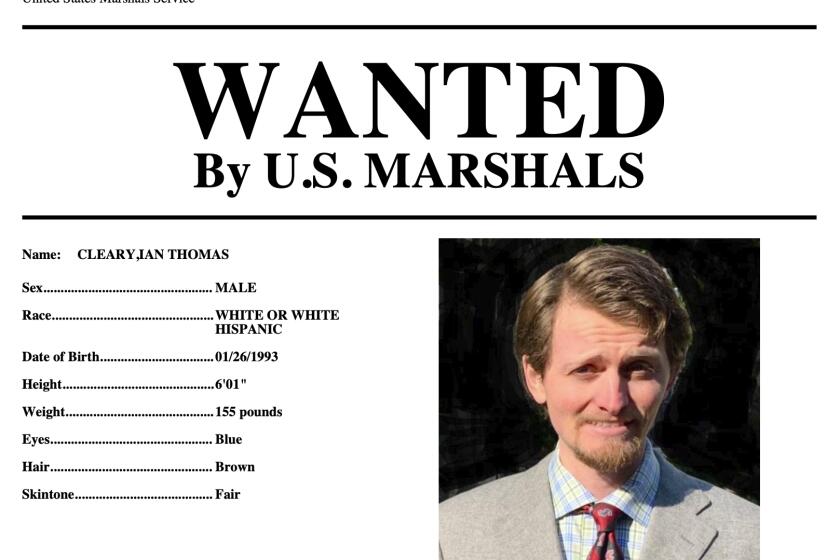U.S., Iran Seek to Defuse Crisis Over Afghanistan
On a day when President Clinton strongly appealed for detente with the Islamic world, the United States and Iran held their highest-level meeting in nearly 20 years Monday and agreed on steps to try to end the threat of a regional war over Afghanistan that could ignite all of South Asia.
Speeches by Clinton and Iranian President Mohammad Khatami, in his debut at the United Nations, reflected a broader common purpose developing between long-standing rivals who now are awkwardly aiming toward formal detente.
The immediate basis for diplomatic movement is Afghanistan, Iran’s volatile neighbor. Secretary of State Madeleine Albright met with a senior Iranian delegation in a diplomatic effort grouping the United States and Russia with six of Afghanistan’s key neighbors in an attempt to defuse the mounting crisis.
Based on a document the U.S. suggested, the parties agreed to several positions, including an immediate cease-fire in Afghanistan’s civil war, a negotiated settlement that includes all the nation’s ethnic groups and an international investigation into widespread reports of mass killings, including slayings of civilians and foreign diplomats.
The “points of common understanding” also called for releasing noncombatants and other detainees; restoring basic international laws and human rights, including the rights of women; and bringing any parties guilty of human rights violations to justice.
The eight governments also agreed to dispatch U.N. special envoy Lakhdar Brahimi to Afghanistan on a fact-finding mission to talk with all major parties to Afghanistan’s domestic conflict. The Taliban, the militant Islamic militia that controls 90% of the nation, does not hold Afghanistan’s seat in the United Nations.
U.S. officials said the White House had worked hard in recent days to find grounds for agreement. Iranian Deputy Foreign Minister Mohammad Javad Zarif called the agreement “a step forward.”
The American delegation expressed its disappointment, however, that Iranian Foreign Minister Kamal Kharazzi did not attend the meeting. The senior Iranian delegate said additions to Khatami’s schedule made it impossible for Kharazzi to do both.
But the meeting underscored the fact that Washington and Tehran find themselves on the same side in their fear of the Taliban, the orthodox Sunni Muslim movement that is in the final phase of consolidating its hold over all Afghanistan and ending a 20-year conflict.
Iran and international human rights groups say that as the Taliban conquered some of the last holdout areas in Shiite Muslim parts of Afghanistan, its Sunni Muslim troops allegedly killed eight Iranian diplomats, an Iranian journalist and perhaps thousands of Shiite Afghans, and took dozens of Iranians hostage. Iran is the world’s largest Shiite country.
As a result, Iran is now deploying more than 200,000 troops along its border with Afghanistan. Without a diplomatic resolution to the internal situation, U.S. officials fear Iran will feel forced to intervene to protect the Shiite community, in turn provoking tensions that could see Pakistan and India end up in direct or indirect roles.
The United States sees the Taliban as host and helper to Osama bin Laden, the wealthy Saudi dissident whose Qaida organization is linked to the bombings last month of U.S. embassies in Kenya and Tanzania that killed at least 260, including 12 Americans.
The original source for U.S.-Iran tension was the 1979 seizure of the U.S. Embassy and the detention of 52 hostages for 444 days.
At a broader level, the speeches Monday by the U.S. and Iranian leaders had striking parallels in calling for bridging the gap between civilizations, and implicitly eventually their own cultures.
Khatami proposed that 2001 be designated the “year of dialogue among civilizations” to promote “universal justice and liberty.”
“If humanity at the threshold of the new century and millennium devotes all efforts to institutionalize dialogue, replacing hostility and confrontation with discourse and understanding, it would leave an invaluable legacy for the benefit of future generations,” he said.
Khatami also introduced himself as a “man from the east . . . and the birthplace of divine prophets Abraham, Moses, Jesus and Muhammad,” a reference to the three major monotheistic religions.
More to Read
Start your day right
Sign up for Essential California for news, features and recommendations from the L.A. Times and beyond in your inbox six days a week.
You may occasionally receive promotional content from the Los Angeles Times.





